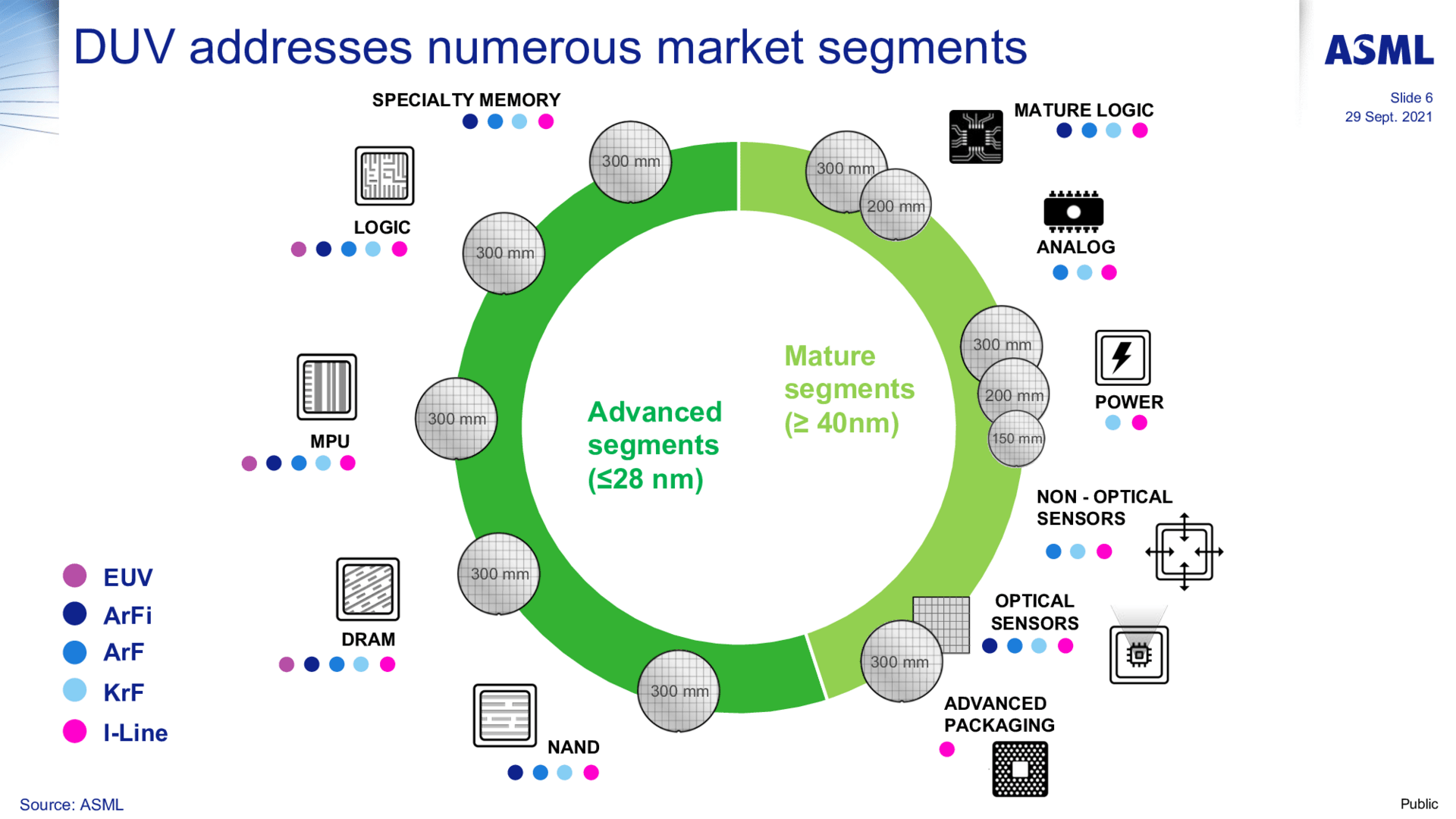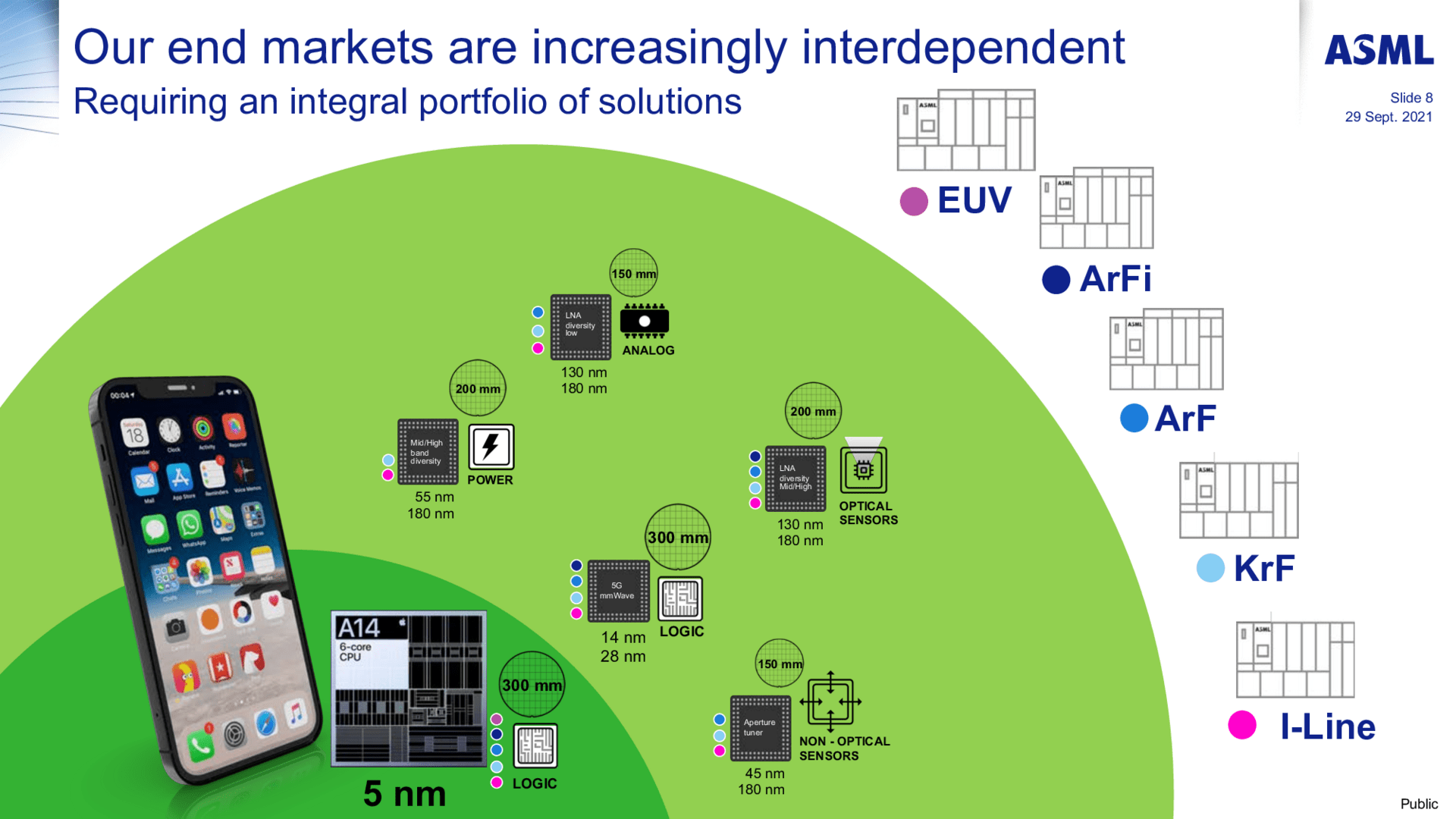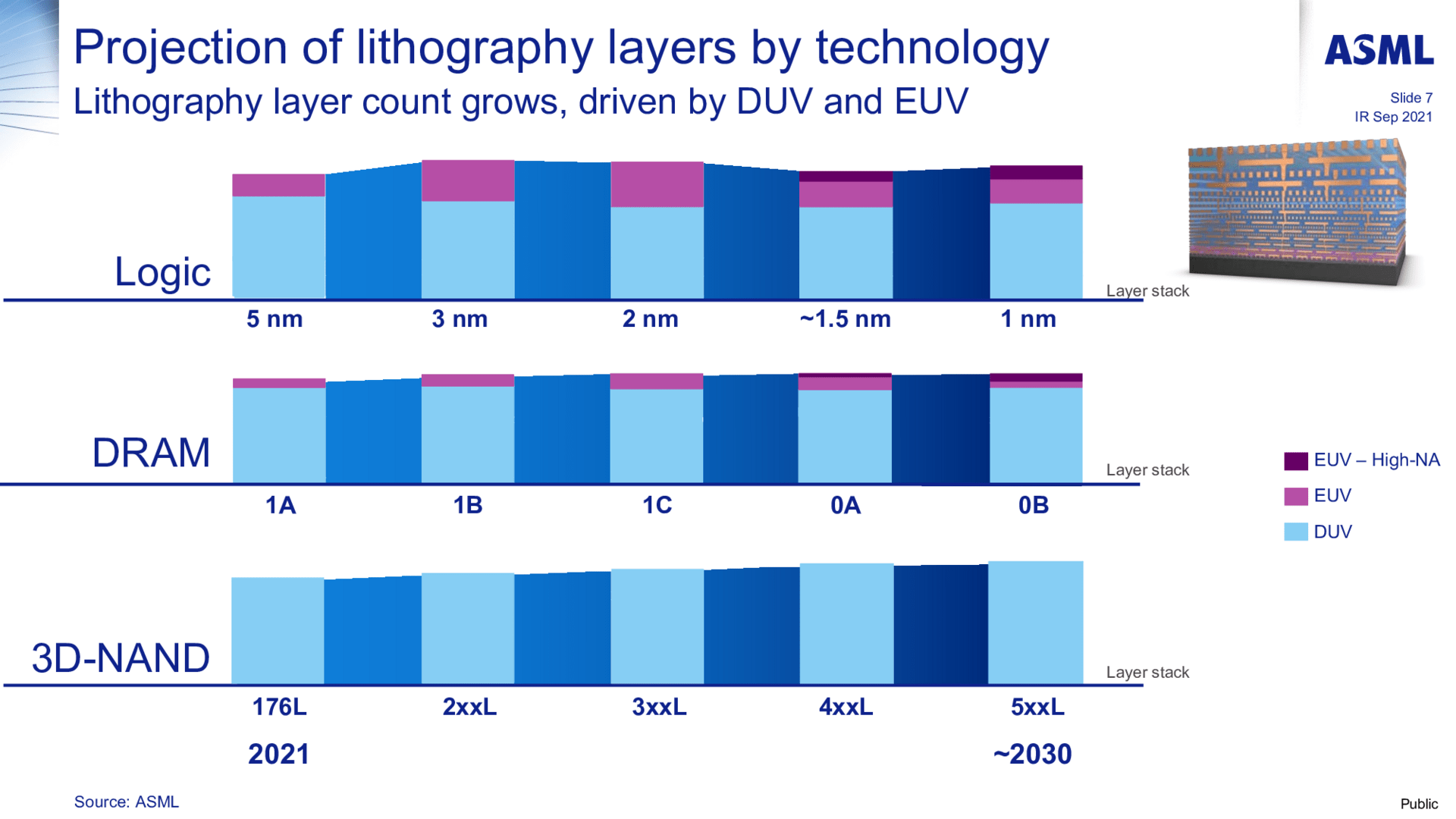The US government is making a new effort to keep ASML's high-end chip manufacturing technology out of China, according to media reports. It's not about the EUV exposure systems, but the DUV scanners that are required on a large scale and represent the backbone of every wafer exposure.
DUV systems in focus
ASML sells more than 250 of these DUV systems (deep ultraviolet) per year, more than five times as much as EUV exposure machines. While EUV scanners are only required for the smallest structures, DUV serves a large part of the nanometer classes above and that in every area. By 2025, the production of DUV systems at ASML is to be expanded to 375 units per year, and China is likely to be included in the forecast so far.
- < figure class="gallery__figure">
 ASML supplies devices for all production stages (Image: ASML)
ASML supplies devices for all production stages (Image: ASML)
Figure 1 of 2
 ASML supplies devices for all production stages (image: ASML)
ASML supplies devices for all production stages (image: ASML)
DUV is sufficient for 28 nm chips
Because China spends a lot of money to make the semiconductor sector competitive. Most recently, there was talk of around 45 billion US dollars again in order to get involved in the DRAM market. Here DUV is still primarily used, only very slowly do the three industry giants not based in China, Samsung, Micron and SK Hynix, switch to EUV for certain exposure steps.
 ASML supplies devices for all production stages (Image: ASML)
ASML supplies devices for all production stages (Image: ASML)Without the technology from the Netherlands, not much would work in China's factories either. Until now, the less sophisticated DUV systems have been partially exempt from US trade restrictions, allowing China to continue to build new factories and set them up for manufacturing stages down to 28nm and 14nm. In the spring there was also a rumor that the People's Republic would create a kind of chip platform in which Western manufacturers would contribute. According to analysts, anyone who wants to do business with China should also get involved in the country. Even then, however, it was already suspected that there should primarily be a way to get currently banned high technology back into the country via detours.
ASML meanwhile is diplomatic. One does not speculate on comments or rumors, there are no concrete announcements in this area, they say. Nikon, a comparatively small light in the field of exposure systems on the world market, also commented that there was nothing to comment on. Whether the US Department of Commerce's request to the Dutch government will ultimately be implemented by ASML remains to be seen.